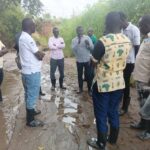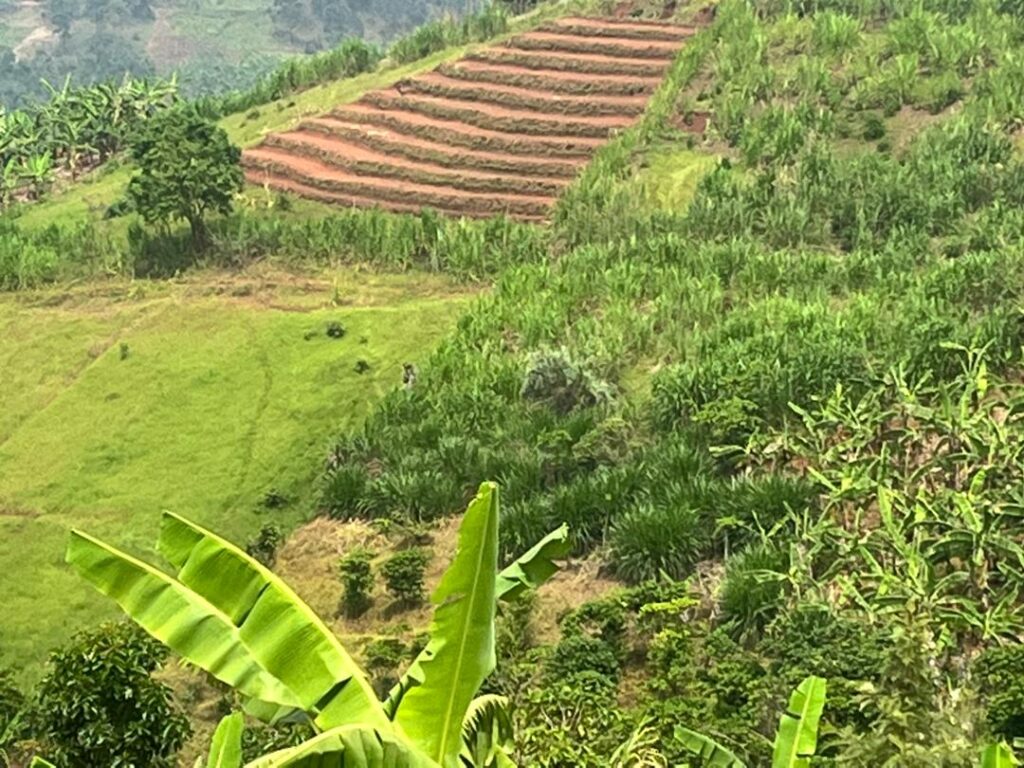A conversation with Bimla Kujur: The Samvidhan Saathi
Article by: Vinitika Lal (PRADAN), Arpan Mondal (MetaMeta Research), Meghna Mukherjee (MetaMeta Research), and Iqra Khan (PRADAN)
Meet Bimla Kujur. Bimla hails from Marcha-Dautoli, a small village in India in Marcha Panchayat, Torpa Block, Jharkhand. Bimla has been working as a Samvidhan Saathi (literally translates to Constitution companion) for the last year, in the field of local democracy. The position of Samvidhan Saathi was created as part of an initiative by PRADAN, an NGO working in the most underdeveloped regions in India. The idea was for the Samvidhan Saathi to assist women interested in knowing and working on their rights and entitlements, and increase civic action through collective efforts.
Bimla was disturbed by the struggles encountered by the Gram Sabha, a village governing institution responsible for local governance-related work. In Bimla’s experience, the Gram Sabha had poor attendance from the village community because they preferred their hamlet level or Tola Sabha for sharing their concerns. Since Tola/Hamlet Sabha covers a smaller geographical area, it becomes easier for women to share information without hesitation. The women are not aware of the work and proceedings of the Gram Sabha and hesitate to voice their opinions in a large forum.
Interestingly, self-governance is not a new concept for indigenous communities. The people from the Munda Tribe have been practicing self-governance since ancestral times, but not in a formal manner. Back then, the elderly people in the community would gather regularly and collectively resolve problems related to the village. Eventually, these self-governance platforms lost relevance as new formal institutions started evolving. These new formal institutions backed by the constitution worked in the same space as the self-governance institutions in the tribal communities. The Gram Sabha is one such formal institution. It is the general body of the Gram Panchayat, a democratic structure working as a cabinet at the grassroots level in India.
Bimla shares that the Gram Sabha had low participation from women since the meetings were usually held at inappropriate times for women. Women found it difficult to attend primarily because of domestic work and lack of mobility. Another reason was these meetings were dominated by male members, and women did not feel comfortable, especially since they were a minority and cultural norms made it difficult for them to voice their opinions.
People who are politically aware of their rights and entitlements can voice their opinion and utilize the potential of the Gram Sabha. As a result, only select people can maximize the benefits of the Gram Sabha. Often, this leads to biases and skewed information, which is detrimental to people who may not be as aware of their rights within these processes and institutions.
Bimla saw this firsthand when her husband had to give up some of the financial benefits provided by the government because he had become employed. However, Bimla explains that many people who had connections with the higher authorities could enjoy the financial benefits even though they had fixed jobs. This inequality and biased behavior motivated Bimla to take a stand. She believes that true equality can be achieved only when everyone is aware of their rights and duties and conscious of the benefits of accessing forums like Gram Sabha. As a Samvidhan Saathi, she is working towards achieving this goal.
Due to the concerted efforts of individuals like Bimla, the Gram Sabha is active today. It has become a platform where social issues are also discussed. So far, in the Marcha Gram Sabha, three committees have been formed, viz. Krishi samiti (Farmer Association), Vikas evam nirman samiti (Progress and Development Association) and Swasthya samiti (Health Association).
Bimla says, “ I am proud that I am now recognized as a Samvidhan Saathi (Constitution companion)– people reach out to me when they require support with resolving matters related to formal documentation, access to government schemes and entitlements such as job cards, pension, birth and death certificates to name a few.” She continues, “I have recently discussed and raised the issues of wage differentiation between men and women for the same amount of time and work. I am discussing the issue at Self Help Group, Village Organisation, and the Cluster Level Federation to advocate for equal wages”. She has also played an active role in organizing Civic Literacy camps to build awareness of rights and entitlements available to citizens according to the Constitution of India and how people can address current issues such as delayed payment in the Mahatma Gandhi National Rural Employment Guarantee Act (MGNREGA) and receiving inadequate amounts of ration than allotted by the government.
Bimla proudly recalls, “I have also made efforts to ensure women’s participation in the Gram Sabha. I attend the Self Help Group, Village Organisation, and Cluster Level Federation meetings and motivate women to attend Gram Sabha and discuss women’s issues being neglected by the existing practices in the Gram Sabha”.
When asked about her ongoing and future plans, she adds, without hesitation, that she intends to continue organizing special camps at the panchayat level to solve issues like making ration cards, Aadhar cards, voter cards, birth certificates, job cards, pensions, caste certificate, and death certificates, etc. accessible to eligible candidates. She wants to prioritize working for vulnerable and disadvantaged people so that it is easier for them to avail of government programs.



